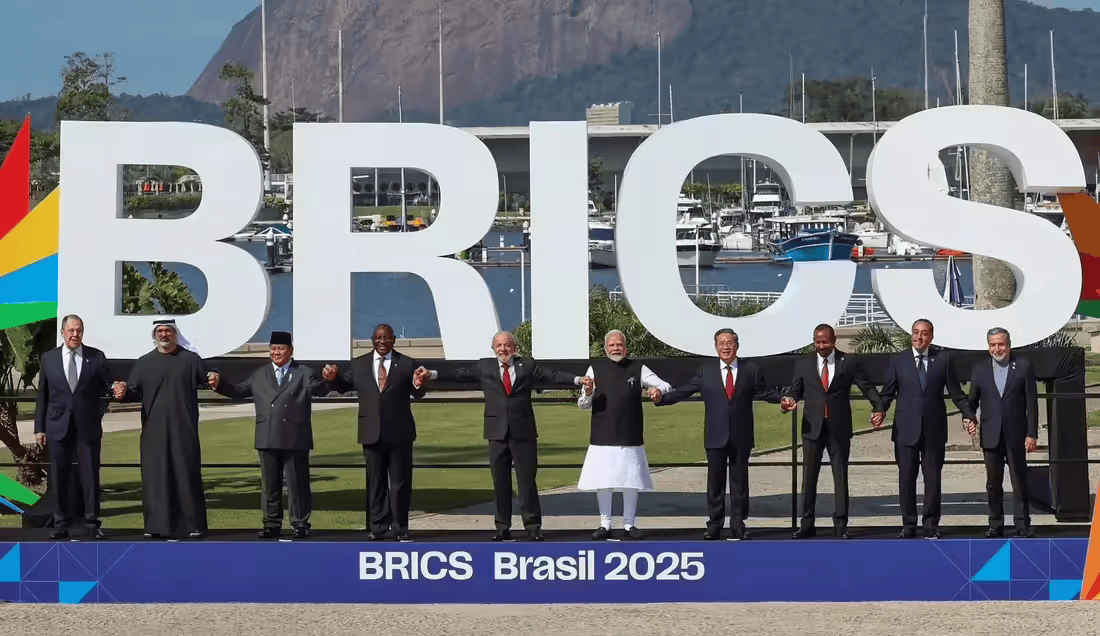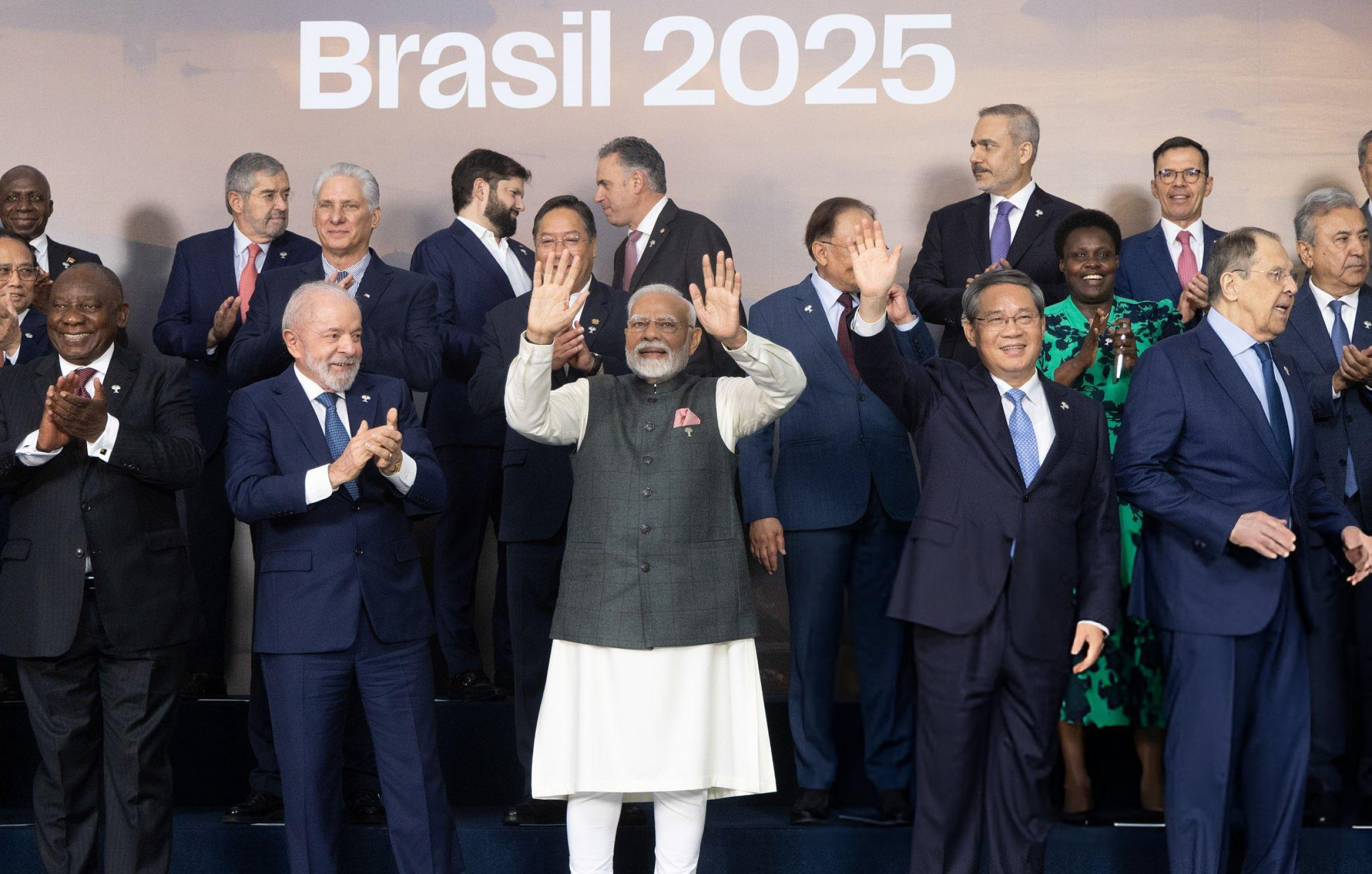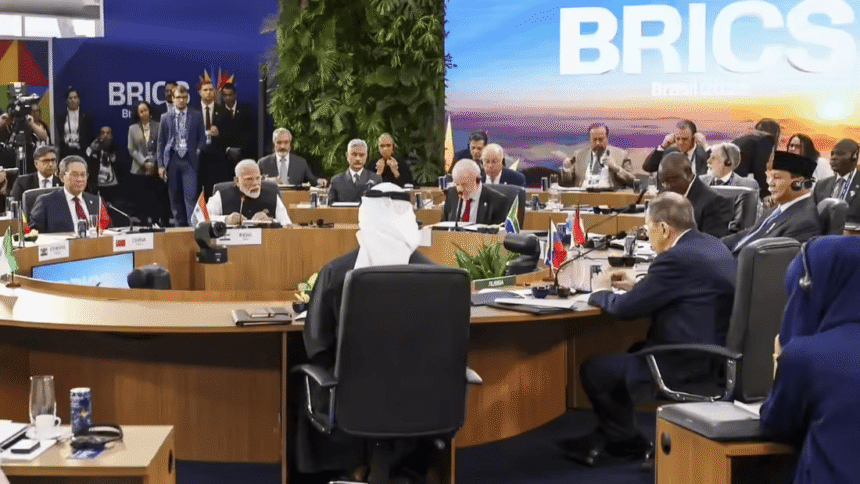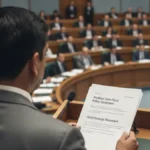“India has achieved a major diplomatic success, gaining the full support of the BRICS nations on two issues it has long championed: fighting terrorism and reforming the United Nations Security Council. This strong backing came out of the recent BRICS Summit, which was chaired by Brazil. The group, made up of Brazil, Russia, India, China, and South Africa, clearly restated its agreement with India’s position. This is seen as a very important moment for India’s efforts to connect with the world and its approach to international cooperation.”
BRICS Declaration: A Firm Stand Against Terrorism
The BRICS joint statement strongly denounced terrorism in all its guises and urged for a relentless global battle against terrorist groups, their hideouts, and the support they receive
across borders. For India, this backing is particularly significant, especially when you consider the intricate regional security setup in South Asia and the ongoing problems posed by terrorism coming from across the border.

India has consistently maintained that it’s wrong to label terrorism as either “good” or “bad,” and has strongly encouraged the international community to adopt a stance of zero tolerance. During the summit, Prime Minister Narendra Modi once again emphasized that terrorism remains the most serious threat to peace and stability, especially when backed, openly or secretly, by state actors.
Following the summit, India’s External Affairs Ministry issued a statement expressing its appreciation for the BRICS bloc aligning with India’s viewpoint. They said, “A united BRICS front on terrorism strengthens the global will to act and puts pressure on all countries to behave responsibly.”
It’s worth noting that this marks the first time BRICS has specifically named and condemned cross-border terrorism with such strong wording. This can be seen as a subtle yet significant indication of support for India’s security concerns regarding Pakistan and regional extremist groups.
Push for UNSC Reforms: A Call for Representation and Equity
It’s also hugely significant that the BRICS nations back the idea of thoroughly overhauling the United Nations Security Council—something India has been pushing for years. The way the UNSC is currently set up, which hasn’t really changed since after World War II, is getting more and more criticism for not properly representing countries from the Global South, especially major emerging economies like India, Brazil, and South Africa.
India’s argument for a permanent seat on the Security Council is based on its impressive credentials. After all, it’s now the world’s most populous country, has the fifth-largest economy, is considered a responsible nuclear power, and is a leading contributor to UN peacekeeping missions.
This point was echoed in the official BRICS statement, which clearly said
“We support a thorough reform of the United Nations, including the Security Council, aiming to make it more democratic, representative, effective, and able to deal with the realities of the 21st century.”
Even though China has traditionally been somewhat cautious about India’s bid for a Security Council seat, the unified BRICS position suggests the group is increasingly mature, choosing to prioritize working together multilaterally over individual bilateral disagreements. For India, this development signals a fresh boost in credibility and legitimacy for its global aspirations.
India’s Role in BRICS: From Participant to Policy Influencer
India has really stepped up its game within the BRICS group, moving from being just one of the players to a key influencer on the world stage. Its leadership in areas like tech-driven growth, digital public services, dealing with climate change, and fighting terrorism has earned plenty of praise from its BRICS partners.

At this year’s summit, Prime Minister Modi emphasized a “BRICS for Global Good” vision, pushing for:
- A united global approach to cybersecurity and how to regulate artificial intelligence.
- Making the New Development Bank (NDB) stronger and more effective.
- Overhauling how global finances are managed.
- Boosting technology sharing among countries in the Global South through South-South cooperation.
India’s own digital breakthroughs, especially its UPI (Unified Payments Interface) and Aadhaar systems, are being held up as shining examples of how to create digital services that benefit everyone. Many other BRICS nations are now looking at these Indian models and showing interest in adopting or adjusting them for their own government
Diplomatic Significance: More Than Just Symbolism
This BRICS summit wasn’t just about polite diplomatic talk; the outcomes are significant. The group’s united stance on fighting terrorism and its push for reforming the UN Security Council really signal a shift in how global power is seen and discussed. For India, this is a strong nod to its careful, principled approach to diplomacy – proving it can stand up for its national interests while also handling the complex world of geopolitics.
These developments also hold significance in the broader context of:
- India is increasingly seen as a leader among developing nations (the Global South).
- It’s actively seeking strategic independence without joining any military alliances.
- The world order is changing, moving away from a single dominant power towards a more balanced, multi-polar structure.
Furthermore, the unified support from BRICS sends a clear message to major international bodies like the UN and the Financial Action Task Force (FATF): reform and accountability are essential, not optional, in the 21st century.
The Road Ahead: Challenges and Strategic Leverage
While having the BRICS nations’ support is certainly a major step forward, the path to actually reforming the UN Security Council is still a long and politically tricky one. The five permanent members with veto power (the P5, particularly the US and China) are still reluctant about expanding the council, worried it might lessen their own influence. However, BRICS’ backing gives India a stronger moral and diplomatic standing to champion this cause more vigorously in big international forums like the G20 and the UN General Assembly.
The same principle applies to the fight against terrorism – words need to lead to real actions. The key challenge is making sure there are consequences, like accountability and sanctions, for countries that give safe haven or logistical help to terrorist groups. India’s next diplomatic goal will be to turn this unified BRICS stance into concrete results within organizations like the FATF, Interpol, and the UN Security Council’s counter-terrorism committees.
Conclusion: A Strategic Milestone for India
The 2025 BRICS Summit is a big deal for India’s diplomatic efforts. With strong support on key issues such as terrorism and reforming the UN Security Council, New Delhi isn’t just sitting in on global talks anymore—it’s actively helping to shape them. For a country with a rich history and ambitious plans for the future, this moment really highlights where it belongs in the big leagues of global decision-making.
As the world shifts toward a more balanced power structure, India’s voice, supported by groups like BRICS, is getting stronger and impossible to overlook.
Keep an eye on The Vue Times for more detailed updates on international happenings, insights into global diplomacy, and how India’s role on the world stage is evolving.










